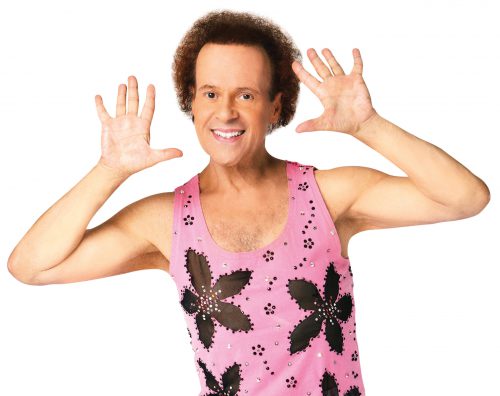
I saw the emotional avalanche that is Dear Evan Hansen two weeks ago, on a yearly childless pilgrimage my husband and I make to the city where we fell in love, and conveniently, where Mockingbird holds an annual conference. Maybe it’s the range and sincerity displayed by headliner Ben Platt, with whose image I am considering adorning my bedroom walls (I think my husband will be fine with it; considering our age difference, it would be more of a proud Teen Mom situation). Maybe it’s the poignant and earworm-ridden soundtrack. Maybe it’s the tendency of the cast to depart from the stage door entrance every night and graciously sign playbills. Or maybe it’s the narrative, which feels personalized to me on every level: high-anxiety mother of at least one high-anxiety son; former awkward teen and current awkward adult; battler of insecurity and feelings of never fitting in.
I loved it, is what I’m saying. And what’s more, I am it.
Which is what happens in the best works of art: we find ourselves there. As far as I’m concerned, there’s a clear-cut reason for this, so lean in close and I’ll tell you the obvious, which is that glory is a byproduct of pain. And we all hurt, social media pics notwithstanding. There’s also this: some of the most productive purveyors of the art form identify themselves as outsiders! I keep this Entertainment Weekly interview with Joss Whedon in my bedside drawer — no lie, right by m’head — because I want to remember, and I want my kids to know, how suffering can render beauty. Can make art. I have a running list in my phone of athletes and thinkers and artists whose stories are fraught with struggle (did you know that in 1963, doctors gave Stephen Hawking two years to live? Or that Broadway musical genius Alex Lacamoire is hearing impaired? Or that Daniel Radcliffe, like my son, has dyspraxia? MY BOYS WILL).
https://youtu.be/x_CNqKA2t9M
I watched Platt (intentionally) shake and sweat and stutter through and otherwise smash the role he appears born to play, that of a misunderstood and unseen teenager who suddenly becomes visible. In the hands and heart of a less skilled performer, his acting choices would have come across as affectations. Something makes me wonder if Platt knows of that which he sings.
On the outside, always looking in
Will I ever be more than I’ve always been?
‘Cause I’m tap, tap, tapping on the glass
Waving through a window
I try to speak, but nobody can hear
So I wait around for an answer to appear
While I’m watch, watch, watching people pass
Waving through a window, oh
Can anybody see, is anybody waving back at me?
I heard the finale of the podcast S-Town during a run along the beach that has recently become my home, a mile-long stretch along the Pacific in view of mountains, ferries, families, and crystal-blue water. Not a terrible place to be, though you wouldn’t know that from the way I fought it when I heard we were headed to Sydney. I have a music-only running policy — I find an angry bass note helps fuel the revenge fantasies that add to my mileage — but on this day I was anxious to hear Brian Reed’s concluding notes on the tragic tale of John Brooks McLemore. While the Good Friday sun streamed down, with thoughts of sacrifice on my mind, I considered the isolation McLemore must have felt on a daily basis, and how individualized yet universal it can be. This Southern enigma — ostensibly racist yet openly liberal, closeted but not, brilliant but trapped, surrounded yet alone — was a mystery both embraced and shunned, loved and despised. Reed’s rendering of his story allows him to be known, yet was he? In an interview with Alec Baldwin, Reed was asked if he saw any of himself in McLemore.
 He replied, “Yeah, definitely. I really respect…people who forge their own way in the world…It’s certainly a way of being in the world that I aspire to…he was so unabashedly himself.” Reed goes on to say that McLemore knew how polarizing his personality could be and didn’t apologize for it or alter it.
He replied, “Yeah, definitely. I really respect…people who forge their own way in the world…It’s certainly a way of being in the world that I aspire to…he was so unabashedly himself.” Reed goes on to say that McLemore knew how polarizing his personality could be and didn’t apologize for it or alter it.
This is all well and good. In fact, my counselor assures me that my own self-awareness is a strength, and while I believe her, I also know it’s not keeping me warm at night or making me feel less awkward in social situations, or more a part of the various groups of which I seem to linger on the periphery. If anything, this self-awareness — born of nearly four decades of living inside my own head (located in proximity to my navel, for gazing purposes) serves to make me more aware of my differences from others. I had hoped Reed’s response would have revealed him to be in the same camp; alas, his was a more reputable reply. But I’ve had plenty of moments when I’ve wondered, like Evan Hansen, if I might just start over with a fresh identity:
‘Cause all that it takes is a little reinvention
It’s easy to change if you give it your attention
All you gotta do is just believe you can be who you want to be
Sincerely, Me
God help us. And welcome to the first three decades of my life. Insecurity, pretending, reinvention: lather, rinse, repeat.
Or perhaps the first six decades of Richard Simmons’ life. His own journey from obese kid to exuberant fitness guru has been known for awhile but is considered afresh in the recent compelling if not slightly icky and exploitative podcast Missing Richard Simmons, a mix of stated altruism and questionable motivation offered by a former student, Dan Taberski. The erstwhile protégé interviews everyone from Simmons’ housekeeper to his brother in hopes of discovering what exactly sent him into relative obscurity back in 2014. Several past interviews with Simmons himself are stitched into the narrative, including his own feelings of worthlessness while growing up an outsider due to his weight issues. In the end, Taberski concludes that Simmons wanted off the juggernaut he created; perhaps he realized that “the longer you stay in isolation, the world goes on without you. And maybe for Richard, that means freedom…Where is he? He’s home. Why has he done this? Because he just doesn’t want to be that guy anymore.”

My own exile isn’t self-imposed, but brought about by my husband’s job/divine decree. And I found, when I was honest with myself (and my counselor), that one of my greatest objections to our move was founded upon my fear of being forgotten. Of disappearing. Of reverting back to the flying-under-the-radar, unseen identity of my growing-up years.
Have you ever felt like nobody was there?
Have you ever felt forgotten in the middle of nowhere?
Have you ever felt like you could disappear?
Like you could fall, and no one would hear?
What I found, instead, is that I have been found.
I was flung into the unknown — another country, another continent, another hemisphere, holy hell — and here I’ve discovered that distance reveals, and love holds. I have found new friendships, and I’ve found new life within old friendships. I’ve seen the glances of strangers become knowing looks. I’ve watched formerly brief catch-up conversations in passing become long and deep emails across an ocean. I am finding the people who, like Evan Hansen’s mom, say with their unwavering presence, “I already know. And I love you.” I am knowing, and becoming even more known.
And I have a piece of people here that I never would have without the exile. Particularly, a piece of my family. My sons, who are revealing themselves to not only be quite the little travelers (THANK GOD) but quite the adorable Sydneysiders as well, are stupefying me with their ability to endear themselves — to be known — to everyone from the café owner to the kids in their classes. Often not in spite of challenges, but because of them.
Out of the shadows
The morning is breaking
And all is new, all is new
It’s filling up the empty
And suddenly I see that
All is new, all is new
“Today is going to be a good day. And here’s why: because today, today at least you’re you and…that’s enough,” Evan says to himself at the end of the show, and if I could be indulged one quibble, it would be this: I’m not enough. I’m not enough for my marriage, or my kids. And I’m not saying that it takes a village, because that’s not enough either. What it takes — what I need — is the One who doesn’t wait until he’s requited his anger via a powerful anthem before embracing me, but did so when I was still in my sins. The One who tells me, “I already know, and I love you,” without condition. The One who makes everything — including me — new.
And yet…old. Or at least, some version of the me I’ve always been? Because I don’t expect the Gospel to magically render me able to enter a room with perfect confidence, or even carry on a smooth impromptu conversation without fail. I don’t think it’s going to remove one son’s diagnosis or make the other’s terrible twos dissipate. It’s not going to potty-train either of them, or make me perfectly patient while doing so. It’s not going to give me a marriage that most people would want to hear a seminar about (“Jesus, Damn My Husband’s Dirty Socks,” anyone? No?) or write a parenting book Lifeway would even think of carrying.
What it does is look at me and love me. And this…this means something. It might actually mean everything.
After the show, my husband and I headed to the stage door and waited, and after a while the cast members came out, one by one. When Platt emerged, the crowd erupted into applause. He reached me and my poster and signed it, and there was so much I wanted to say: Thank you for an honest portrayal of anxiety. Thank you for capturing how it feels to hurt so badly you might just end it all. Thank you for giving a performance that will one day make my sons feel less alone. But all I could say was, simply, “Thank you.” Words fail. They aren’t enough.
The other day, after our recovery from jet lag upon our trip “home,” I stood with my boys at the top of the stone steps leading down to our beach. Holding one small hand in each of my own, I prepared to descend, then was jarred by my youngest suddenly screaming, “HERE WE ARE!” And I couldn’t help but think it was a perfect reintroduction to this new place of ours, this new life: here we are, in all our messiness, all our outsider-y-ness, all our challenges and awkwardness and imperfectness. Our car that is filled with sand. The nights when I drink one glass too many. My constant failure to be the mom and wife and person I planned to be.
“Here I am,” I say sheepishly, even ashamedly. And grace replies, “Today you are you…and I AM enough.”

COMMENTS
4 responses to “Dear Evan Hansen, I’m Missing Richard Simmons from S-Town, or: A Note from the Outcast”
Leave a Reply













🙂
I love this.
Your writing ALWAYS makes me cry…in a good way.
Relistening to Dear Evan Hansen and was thrilled to find something on Mbird that engages with it … also this Cynthia Erivo performance!!